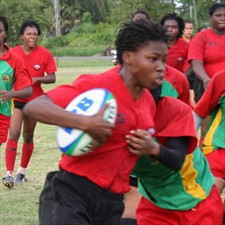From the multicultural islands of Singapore we head to the equally multicultural, albeit exponentially smaller, Central American country of Belize for #Day14 of #16Days. With an estimated 340,000 people in its borders statistics on Belize are much simpler to attain than many countries. One shelter in Belize sees 40-50 walk-in clients per month. A 1998 study stated that 50% of all women in Belize have been subject to domestic violence.
According to the World Economic Forum’s 2012 Gender Gap Report Belize ranked 102nd of 135 (the third worst in Latin America) in gender equality, despite tying many countries for first place in health and survival, because it ranked 77th in Economic Participation and Opportunity, 100th in Educational Attainment (the lowest rank in the region) and 131st in Political Empowerment. (The US ranked 8th, 33rd and 55th respectively, to give you a comparison.) Unfortunately for Belize since 2006 their score has just continued to fall.
The Women’s Department of the Ministry of Human Development aims to promote gender equality and equity. They propose doing this through:
- Community Development- The Department develops and coordinates services that are primarily aimed at assisting women to take on greater roles and responsibilities within the local community and enhance their skills and economic independence.
- Education- The Department organizes and facilitates educational workshops throughout the country on issues of interest to women and men. It participates in radio and television programs and hosts a resource library that houses books, reports and magazines and research papers that relate to women.
- Policy Development- The Department works along with NGO’s and other Government Ministries to lobby and advocate for the development of gender-sensitive policies and programs that will enhance the lives of women.
- Training- The Women’s Department offers course in Computer Literacy, Sewing, Cake Decorating, Arts & Craft,Personal Development and Gender Awareness.
The National Women’s Commission–appointed by the Ministry of Human Development and Social Transformation–”is a body of individual women and men appointed by the Government to function as a strategic guidance and oversight mechanism for the achievement of gender equality, equity and women’s empowerment in Belize.” A number of publications regarding women’s rights and gender equality are available on their website.
The Ministry of National Security operates the Belize Police Department Family Violence Unit. Their goal is to “assist the public in dealing with issues of family violence by offering direct services or in doing referrals to other relevant governmental agencies and NGO’s as the case may call for based on needs and the victim’s decision.” They can be reached at 501-227-2222. The government also provides a list of emergency numbers–city-by-city–here.
Two shelter programs are available to those seeking freedom from violence in Belize. “There is no direct line for Haven House shelter, however members of the public can contact the shelter through the women’s department at the Domestic Violence Unit, Police department. The numbers are 011-501-227-7397 and o11-501-227-3888.” Mary Open Doors also provides shelter to survivors of all genders who have faced abuse and violence. Their office is open Monday to Friday from 9am to 4pm and their Emergency Number is 629-6315. They offer:
- Education on the dynamics of domestic violence and your rights
- Immediate temporary shelter
- A fresh start to an independent and positive future
- No less than 21 days stay with basic needs
- Initial meeting with qualified social worker/ counselor
- Basic counseling
- Supportive parenting classes
- Referrals
- Court Advocacy
- Skills Training
The Cornerstone Foundation offers a number of programs. In addition to its Women Program which focuses on financial dependency, inadequate education and vocational skills, size of families, and domestic violence, they also have programs dedicated to Health, Youth, HIV/AIDS, Relief & Aid, Literacy and Community Linking.
WIN Belize–the Women’s Issues Network–hosted a 12-week National Women Leaders Training this year for women interested in a political career. “Over the years, WIN-Belize has worked on programs in the areas of: Organizational Development, Community Outreach and Communication, and Advocacy. The Network has, for example, implemented a successful Minimum Wage Campaign to raise the minimum wage for female-dominated jobs and eliminate gender disparities in the minimum wage levels for men and women. The Network has created awareness nationally, on the impact of globalization and trade issues on women. Several joint women’s empowerment projects involving the constituent groups of member agencies were also implemented.”
For such a small country the quality of their resources is impressive. Let’s hope their capacity continues to grow and that equality in Belize outpaces all other aspects of development. Keep up the good work!












